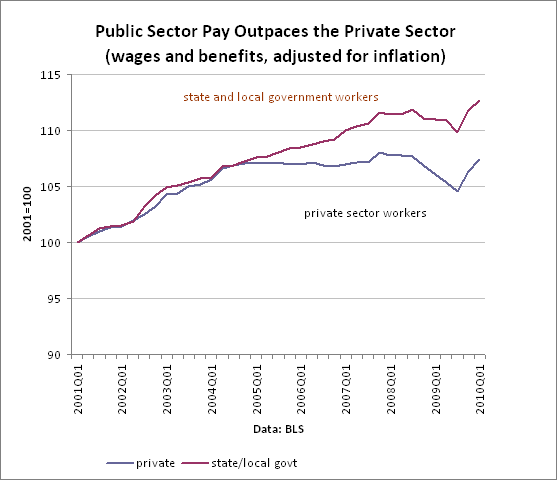ヨーロッパのニュースで何回か目にした無償インターンシップの問題がNYTimesでも取り上げられている(ht@TheSyntaxError):
Growth of Unpaid Internships May Be Illegal, Officials Say – NYTimes.com
With job openings scarce for young people, the number of unpaid internships has climbed in recent years, leading federal and state regulators to worry that more employers are illegally using such internships for free labor.
若年層の雇用が細るにつれて無償インターンシップが増えているており、その合法性が取り沙汰されている。
Among those criteria are that the internship should be similar to the training given in a vocational school or academic institution, that the intern does not displace regular paid workers and that the employer “derives no immediate advantage” from the intern’s activities — in other words, it’s largely a benevolent contribution to the intern.
無償インターンシップが合法であるためには、インターンシップが職業学校のトレーニングに近く、かつ雇用を奪わず、雇用主が直接の利益を得ない必要があり、殆どの無償インターンシップはこの基準を満たさない。
In 2008, the National Association of Colleges and Employers found that 83 percent of graduating students had held internships, up from 9 percent in 1992. This means hundreds of thousands of students hold internships each year; some experts estimate that one-fourth to one-half are unpaid.
単なる経済環境の悪化だけでなく、インターンシップそのものの広がりも寄与している。1992年に僅か9%だったインターン経験は2008年には83%となっており、むしろインターンシップしない学生のほうが珍しい状況だ。そのうち1/4から1/2が無償ではないかと推測されているそうだ。
“Employers increasingly want experience for entry-level jobs, and many students see the only way to get that is through unpaid internships.”
雇用主がエントリーレベルにおいてもある程度のスキルを求めていることがその理由だ。転職が盛んなため、新卒を雇用して教育しその後生産性に比べ低い賃金で働いてもらうということができない以上、企業は労働者の教育費用を払うインセンティブがない。スキルの低い労働者は教育費用を差し引いた給与しか出せないが、最低賃金を下回る金額では正規に雇用できず、無償インターンシップというグレーゾーンになるのだろう。
解雇が難しいが転職も困難なため、社内教育がメインとなる日本とは対照的な構図だ。労働市場の流動化が進めばこういった問題は日本でも生じるだろう。
Many employers say the Labor Department’s six criteria need updating because they are based on a Supreme Court decision from 1947, when many apprenticeships were for blue-collar production work.
このような不整合が生じているのは、先に上げた無償インターンシップに関する基準が六十年以上前に出されたものであることに由来する。ブルーカラーを念頭においており、所謂インターンシップというよりはアプレンティスシップに近い。当時であれば雇用主の力が相対的に強く、こういった規制も合理的だったかもしれないが、これが現在に当てはまるかは疑わしい。
“One criterion that is hard to meet and needs updating is that the intern not perform any work to the immediate advantage of the employer. In my experience, many employers agreed to hire interns because there is very strong mutual advantage to both the worker and the employer. There should be a mutual benefit test.”
特に雇用主が直接の利益を得てはならないという基準は非常に時代遅れだ。昔ならある地域のある業種の就職先が限られているなどトレーニングの便益を正式に就職した後に回収できたかもしれない。しかし、今ではインターンで経験を積んだ学生が自分の会社に就職する保障は全くない。インターンを雇うのは企業にとってもインターンにとっても何らかの利益があるからであって、企業に慈善事業を期待するのは無理がある。企業に利益がないなどという意味不明な条件ではなく、双方に利益があるという条件にすべきというのはその通りだ。
“A serious problem surrounding unpaid interns is they are often not considered employees and therefore are not protected by employment discrimination laws,”
無償インターンシップが制度として運用されていないことはさらに大きな問題を引き起こしている。それは正規の雇用ではないがゆえに雇用に関する規制が適用されないことだ。性差別・人種差別などの法律がそれに当たる。無償、つまりお金の流れが無いゆえに無償インターンシップを規制するのは非常に困難だ。エンフォースメントの費用を考えれば強い規制をかけて取り締まるよりも、実態に近い制度を用意した上でそれなりのルールを守らせる方が効率的だろう。
日本でもインターンシップが広がっており同じような問題が生じるだろうが、その時に過剰な規制をかけてそもそも若者が経験を得るチャンネルを塞いでしまわないことが望まれる。
P.S. 特に大学関係者がこうしたインターンシップを批判するときは気を付ける必要があるだろう。大学はキャリア教育という市場でインターンシップとは競合関係にあり、中立的とは思えない。それどころか大学は授業料を取っているのだから(無償)インターンシップを非難するのはおかしいだろう。しかも大学は入ってしまえば切り替えるのが難しいがインターンはダメだと思ったらやめればよい。
